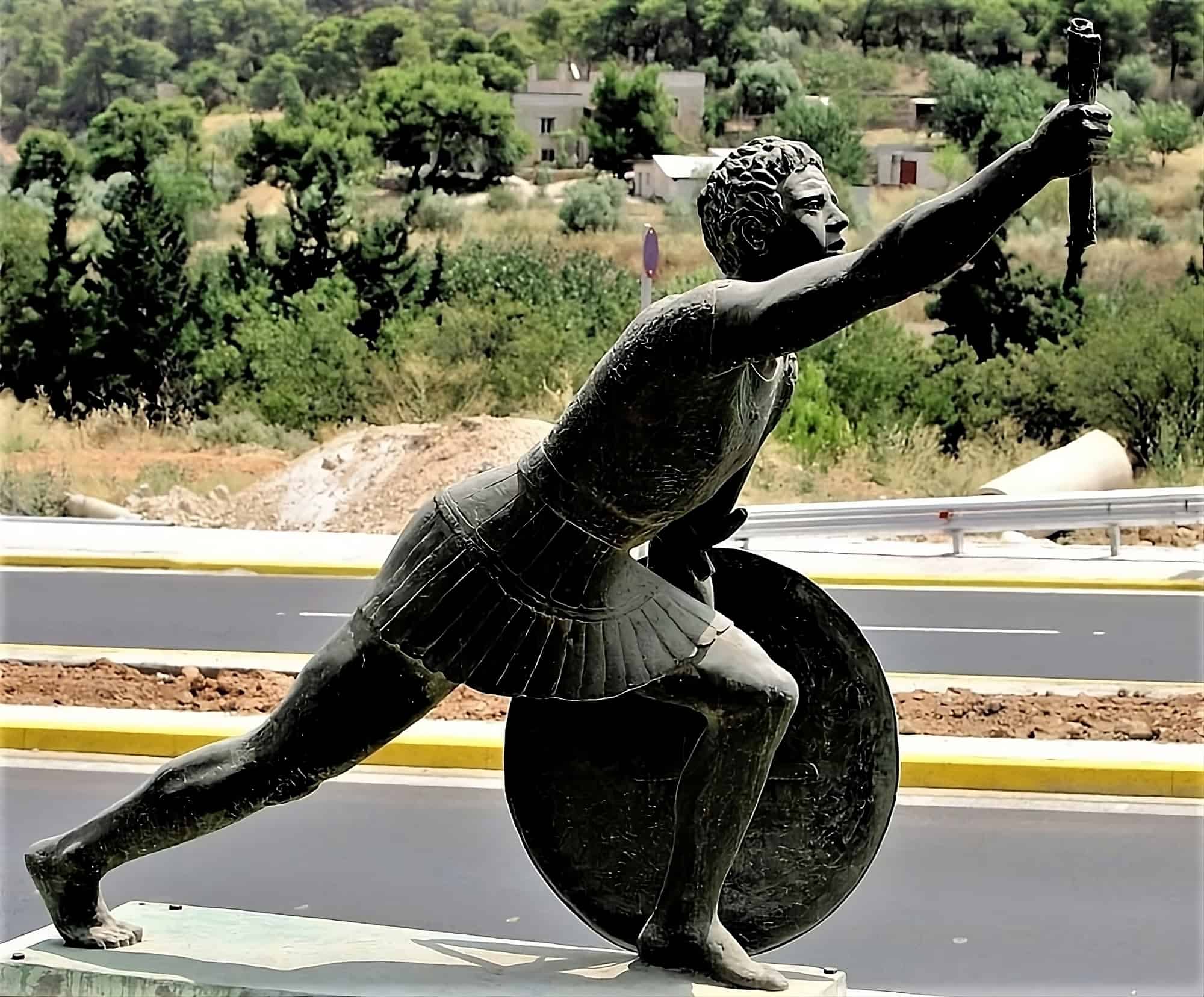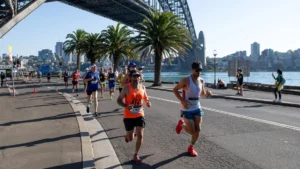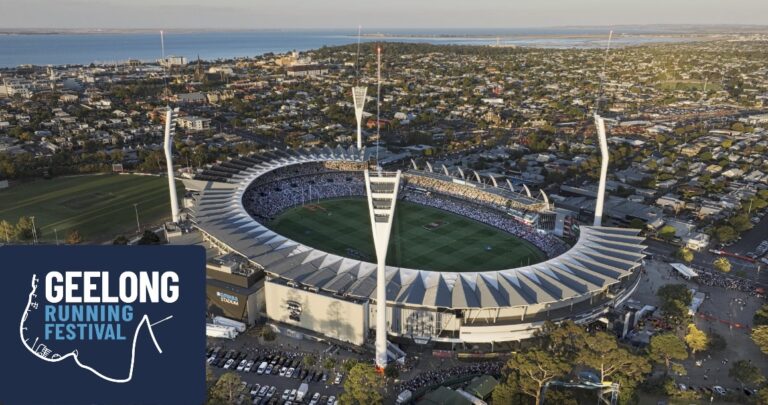The marathon, a symbol of human endurance and spirit, boasts a history as rich as it is captivating, dating back to ancient Greece. Inspired by the legendary tale of Pheidippides, who heroically ran from the Battle of Marathon to Athens to announce a crucial victory, the race has witnessed dramatic evolution over centuries. Since its reintroduction in the 1896 Olympic Games, the marathon transitioned from an elite athletic spectacle to a global celebration that unites millions of runners from diverse backgrounds.
Today, marathons are far more than competitive events; they are lively gatherings uniting the fitness community, sparking personal achievements and promoting global health and wellness. Join us in exploring the marathon’s historical journey and uncover the exciting new running opportunities awaiting in Australia.
Ancient Origins of the Marathon
The marathon’s roots are entrenched in the legend of Pheidippides, an ancient Greek messenger. In 490 BC, following the Greeks’ triumph over the Persians at the Battle of Marathon, Pheidippides was tasked with relaying the victory to Athens. As legend has it, he ran about 25 miles to deliver his message of “Rejoice, we are victorious,” only to collapse from exhaustion. Though likely embellished over time, this tale embodies the marathon’s spirit of endurance and commitment that is still felt today.
The myth of Pheidippides has been immortalised in literature and as the core inspiration behind the marathon race itself, serving as a powerful testament to human resilience and determination. This story inspired the marathon event’s inception in the first modern Olympic Games held in Athens in 1896.

The Battle of Marathon stands as a pivotal moment in Greek history and the marathon narrative. Fought in 490 BC, it saw the outnumbered Athenian army defeating Persian forces at Marathon. This victory was crucial not only for the Greeks’ defence but also for boosting morale and marking a turning point in the Greco-Persian Wars.
The battle’s significance resonated beyond military success, symbolising unity and resilience for the Greeks. Pheidippides’ legendary run from the battlefield to announce the victory remains a historic moment, commemorated through marathon races, linking the ancient past with modern athletic endeavours.
However, the story of Pheidippides’ run likely combines myth with historical fact. Ancient texts claim the run announced a victory, but ancient Greek historian Herodotus offers an alternate account. According to him, Pheidippides was dispatched from Athens to Sparta for military aid before the battle, covering around 240 kilometres. This version challenges the post-battle narrative.
Despite the lack of definitive evidence supporting the popular tale of the run, the tale captivates and highlights ancient Greece’s emphasis on endurance and communication, infusing the marathon’s history with both myth and fact.
The Marathon in the Olympic Games

The marathon’s revival in the 1896 Olympic Games marked a key moment in sports history. Frenchman Michel Bréal, inspired by Pheidippides, proposed the race for the first modern Olympics in Athens. Embraced by Baron Pierre de Coubertin, it linked ancient and modern worlds.
The inaugural marathon covered about 40 kilometres from Marathon Bridge to the Panathenaic Stadium. Greek runner Spyridon Louis became a national hero by winning it. Establishing the marathon in the Olympics paved the way for it to become a prestigious and lasting athletic challenge.
The marathon distance has evolved significantly since its inception. Initially approximately 40 kilometres, it wasn’t standardised until the 1908 London Olympics. The course then stretched to 26 miles and 385 yards to start at Windsor Castle and finish before the royal box at the Olympic Stadium.
This specific distance quickly became the standard globally, embodying a mix of endurance, strategy, and perseverance. It shaped the marathon into the rewarding event that inspires runners worldwide.

The Olympic marathon has seen numerous memorable moments. The1908 London Olympics featured an iconic event when Italian runner Dorando Pietri collapsed multiple times and was disqualified for receiving help. His struggle highlighted the race’s gruelling nature.
In 1960, Ethiopian Abebe Bikila became the first African to win an Olympic marathon – sensationally running barefoot – sparking the rise of East African runners who have dominated the sport for generations since. The 1984 Los Angeles Olympics introduced the women’s marathon, with Joan Benoit Samuelson winning, advancing gender equality.
Mass Participation Marathons

These events showcase not only athletic skill but also the marathon’s role in broader social and cultural change, inspiring millions globally.
The global popularity of marathons has surged over the last few decades, evolving from elite competitions to inclusive events for all skill levels. Factors like increased awareness of running’s health benefits and community fitness movements drove this growth.
Cities worldwide capitalise on marathons to boost tourism and local economies, launching iconic races like the New York City Marathon, London Marathon, and Tokyo Marathon, drawing participants globally.
Technology and social media advancements now allow runners to share experiences and connect with a global community, making marathons a celebration of personal achievement and camaraderie.
Iconic marathons worldwide have become cultural landmarks. The Boston Marathon, dating back to 1897, remains prestigious for its challenging route. The New York City Marathon epitomises the city’s diversity.

The London Marathon, launched in 1981, is known for its scenic course along the Thames. The Berlin Marathon, known for fast courses and records, and the Tokyo Marathon, showcasing Japan’s culture, offer unique challenges.
These events test endurance and promote global unity through the shared pursuit of running.
Marathons in Australia

Marathon running has a rich history in Australia, dating back to the early 20th century. The first recorded marathon in Australia took place in Sydney in 1906, just ten years after the inaugural modern Olympic marathon in Athens. This event was part of a broader interest in distance running, which was gaining popularity globally at the time. The race was organised by the NSW Amateur Athletic Association (now Athletics NSW) and was held on a course that started and finished at the Sydney Cricket Ground.
Marathon running in Australia gained further prominence with the establishment of the Australian Marathon Championship in 1920. The event was held in Melbourne and became a significant fixture in the Australian athletics calendar. The first official Australian marathon champion was Jack Donaldson, who completed the course in 2:57:18.
Throughout the 20th century, marathon running continued to grow in popularity, with more events being established in major cities across the country. The Sydney Marathon, which began in 1979, and the Melbourne Marathon, inaugurated in 1978, became two of the most prestigious marathon events in the country, attracting elite athletes from around the world.

Australian marathon runners have also made their mark on the international stage. One of the most notable achievements came in 1967 and 1969 when Australia’s Derek Clayton set world records with times of 2:09:37 and 2:08:34 in the marathon, the latter a record that stood for over a decade. Other significant moment in Australian marathon history were Robert de Castella’s victory at the 1983 World Championships in Helsinki, where he became the first-ever marathon world champion; Lisa Ondieki becoming Australia’s only Olympic medallist with silver in 1988; and Steve Moneghetti’s bronze medal at the 1997 World Championships.
In recent years, the marathon has become a popular event for recreational runners, with thousands participating in marathons across Australia each year. The growth of these events reflects the broader popularity of running as both a competitive sport and a recreational activity in Australia.
Australian Marathon Calendar
Marathon running in Australia is booming, with record levels of runners each year and many races reaching their entry capacities.
There’s dozens of marathon races held around Australia each year. Check out the closest one to you!











